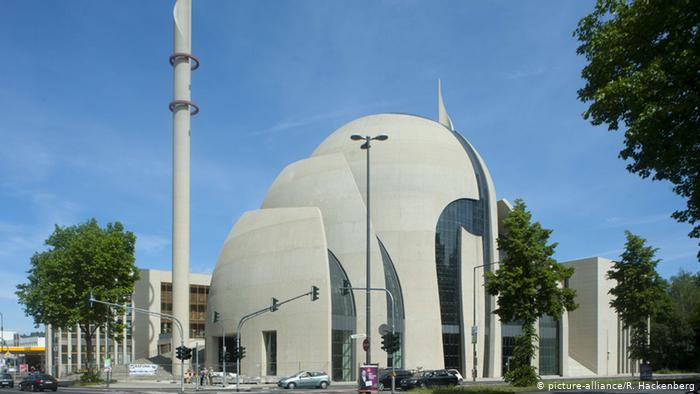Germany’s biggest mosques broadcasts call to prayer for first time
One of Germany’s largest mosques sounded the call to prayer for the first time this week after a years-long battle with local authorities. The Central Mosque, in the city of Cologne, played the muezzin call shortly after 3pm on Monday inviting the city’s 100,000 Muslims to pray. Mosques elsewhere in Germany have long been allowed […]

One of Germany’s largest mosques sounded the call to prayer for the first time this week after a years-long battle with local authorities.
The Central Mosque, in the city of Cologne, played the muezzin call shortly after 3pm on Monday inviting the city’s 100,000 Muslims to pray.
Mosques elsewhere in Germany have long been allowed to play the call, but Cologne’s move is significant because of the mosque’s prominence.
Run by the Turkish-Islamic Union for Religious Affairs, or DITIB, it was inaugurated by Turkey’s President Recep Tayyip Erdogan in 2018.
The city’s mayor has said that allowing the call – which can play for a maximum of five minutes between 3pm and 4pm each Friday – is a symbol of tolerance.
But critics said the call is actually symbolic of a brand of repressive Islam and casts the city in a poor light.
Other have argued that the mosque itself is a soft power play by Turkish autocrat Erdogan, and allowing the call to play is a symbolic victory for his regime.
DITIB says an agreement for a two-year trial of the call was made with the city on Wednesday.
Until now, the call to prayer was heard only inside the building. On Friday, it is to be broadcast by loudspeaker and will be audible outside, though authorities stipulated that it should be limited to 60 decibels for nearby residents.
Cologne’s mayor has said that allowing the call to prayer shows diversity is appreciated in the city. (AFP)
